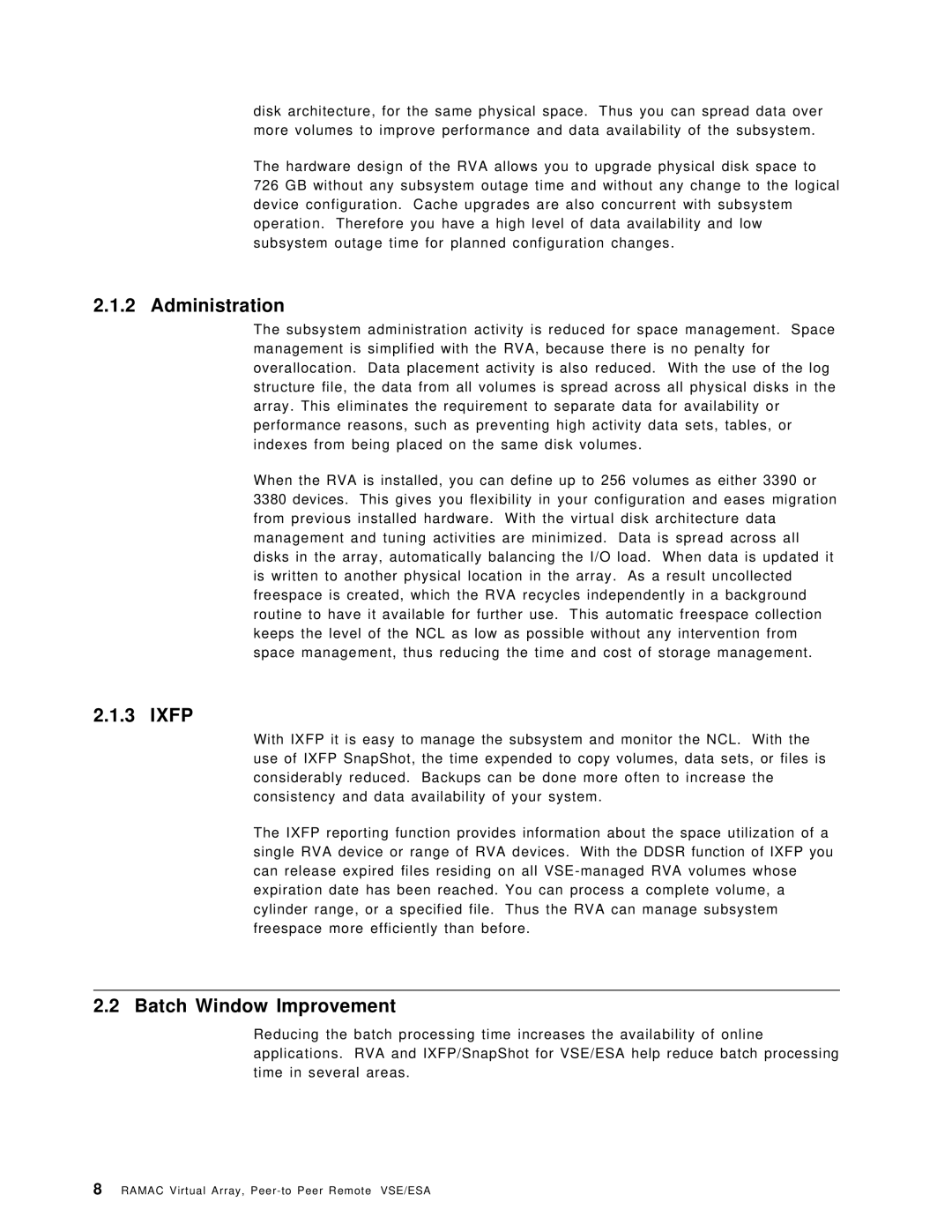disk architecture, for the same physical space. Thus you can spread data over more volumes to improve performance and data availability of the subsystem.
The hardware design of the RVA allows you to upgrade physical disk space to 726 GB without any subsystem outage time and without any change to the logical device configuration. Cache upgrades are also concurrent with subsystem operation. Therefore you have a high level of data availability and low subsystem outage time for planned configuration changes.
2.1.2 Administration
The subsystem administration activity is reduced for space management. Space management is simplified with the RVA, because there is no penalty for overallocation. Data placement activity is also reduced. With the use of the log structure file, the data from all volumes is spread across all physical disks in the array. This eliminates the requirement to separate data for availability or performance reasons, such as preventing high activity data sets, tables, or indexes from being placed on the same disk volumes.
When the RVA is installed, you can define up to 256 volumes as either 3390 or 3380 devices. This gives you flexibility in your configuration and eases migration from previous installed hardware. With the virtual disk architecture data management and tuning activities are minimized. Data is spread across all disks in the array, automatically balancing the I/O load. When data is updated it is written to another physical location in the array. As a result uncollected freespace is created, which the RVA recycles independently in a background routine to have it available for further use. This automatic freespace collection keeps the level of the NCL as low as possible without any intervention from space management, thus reducing the time and cost of storage management.
2.1.3 IXFP
With IXFP it is easy to manage the subsystem and monitor the NCL. With the use of IXFP SnapShot, the time expended to copy volumes, data sets, or files is considerably reduced. Backups can be done more often to increase the consistency and data availability of your system.
The IXFP reporting function provides information about the space utilization of a single RVA device or range of RVA devices. With the DDSR function of IXFP you can release expired files residing on all
2.2 Batch Window Improvement
Reducing the batch processing time increases the availability of online applications. RVA and IXFP/SnapShot for VSE/ESA help reduce batch processing time in several areas.
